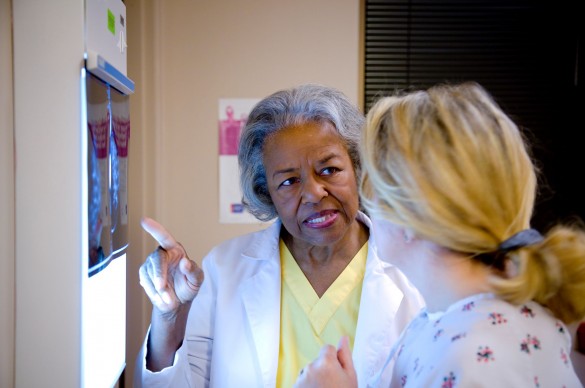As successful and exciting as 2011 was for ACS CAN, 2012 promises to be another outstanding year for cancer advocacy. After nearly 40 years of volunteer work for the American Cancer Society, I came on board as the ACS CAN Board Chair in November of last year. I’m now directly involved in advocacy more than I’ve ever been before, and I wanted to share with you some highlights of what we’re looking forward to in 2012.
As ACS CAN has done for the past several years, we will kick off the year by watching the President’s State of the Union address on January 24. Through an interactive online chat, advocates across the country will listen for a pledge from the President to make fighting cancer a national priority for the coming year. I hope you will join us.
At the national level, ACS CAN will be focused on sustaining funding for cancer research, prevention and early detection programs. Late in December, Congress passed a spending bill for Fiscal Year 2012 that included an increase for research funding at the National Institutes of Health (NIH). With more than 12 million cancer survivors alive today thanks to research breakthroughs, we can’t lose that momentum in 2012. ACS CAN is continuing its efforts to highlight the importance of federal funding for cancer research this year, including organizing events at eight or more prominent cancer centers around the country.
ACS CAN also continues to be actively involved in implementing provisions of the Affordable Care Act – provisions that benefit cancer patients and their families. We’ll be keeping close watch for a Supreme Court ruling on the constitutionality of the “individual mandate”, on which critical patient protections rely, and working in the states to set up both health exchanges and essential benefits plans that are adequate for cancer patients and survivors. ACS CAN will also be working hard to protect the $15 billion Prevention and Public Health Fund, which will save lives by reducing tobacco use, addressing the causes of obesity and providing increased access to cancer screenings nationwide.
Of course, you can’t talk about 2012 without mentioning the November elections. This election season presents a huge opportunity for ACS CAN – both to build the organization and to impact legislation by getting candidates at all levels to speak on the record about cancer issues. When lawmakers take office, they will be familiar with ACS CAN’s priority issues and our lead volunteers. The 2012 program – known as “Cancer Votes” – will be the largest electoral effort ACS CAN has ever run.
There will be lots of work taking place in the states, but I want to highlight, in particular, two ballot initiatives that present opportunities for significant tobacco tax increases in 2012.
In California, the California Cancer Research Act (CCRA) will appear on the June 5 state ballot. If passed, this initiative would raise the tax on cigarettes in California by $1 per pack and increase rates on other tobacco products (OTP) by an equivalent percentage. Sixty percent of the new revenue, approximately $468 million annually, would be directed to research on cancer and tobacco related diseases. Additionally, almost a quarter of the new revenue, approximately $180 million annually, would be directed to tobacco control programs. These funds for tobacco control would essentially triple existing funding for the state’s successful tobacco control program, which has helped lower tobacco use rates in California and serves as a model for programs around the nation and globe. However, its funding has dropped to only 15.8 percent of the level recommended by the CDC for fiscal year 2012.
In Missouri, which currently has the lowest cigarette tax in the country at 17 cents per pack, signatures will soon be gathered for an initiative that will appear on the November general election ballot. If passed, the initiative would increase the tax on cigarettes by 73 cents per pack with somewhat less-than-equivalent increases on other tobacco products. Twenty percent of the new revenues from this tax increase would be devoted to tobacco control in a state with some of the highest tobacco use rates in the country. Thirty percent of the revenues would go to higher education with an emphasis on training future medical care providers, and 50 percent would go to K-12 education in the state. Passage of this measure to both raise the tax significantly and target revenues to tobacco control would make this proposal a win-win for tobacco control in Missouri.
The year ahead of us will no doubt be challenging. But with the passion of the ACS CAN staff and volunteers, I am confident we will take significant strides in making the elimination of death and suffering from this disease a priority with our elected officials.
Robert R. Kugler, Esq. currently serves as the Chair of the Board of the American Cancer Society Cancer Action Network.

